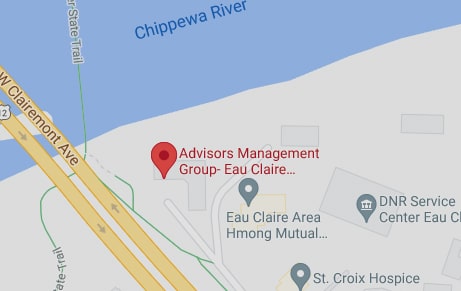Last year, millions of people in the US were victims of identity theft.
Identity theft is when a thief uses your personal information to open bank accounts or other financial accounts, take out loans, file tax returns, or even make fake medical claims.
The repercussions can be far-reaching and long-lasting. Once your credit has been laid to waste by identity theft, it’s more difficult to save for retirement, buy a house, expand your family, and much more.
A related problem requiring the same kind of follow-up is when criminals scam people into making fake transactions or giving them personal information.
If you’re concerned that you may be at risk of identity theft, read the following.
Know the signs of identity theft
There is no red warning light or alarm bell, but some signs of identity theft include:
- Receiving emails or letters about accounts with which you are unfamiliar
- Receiving bills for items you did not buy
- Getting calls from debt collectors about accounts you never opened
- Being denied for loans you expected to be no problem
Take these steps if your identity is stolen
1. Notify relevant companies
If you notice fraudulent transactions or accounts, report the discrepancy to the company in question right away.
In some cases, the thieves might only have your account number rather than all of your personal information. If so, simply canceling and reopening the account with a different number may resolve the problem.
However, if someone is using your social security number and opening accounts in your name, things become much more complicated. You would need to move on to the next steps.
2. File a report with the Federal Trade Commission (FTC)
The FTC compiles information about identity theft cases. The Federal Bureau of Investigation and other agencies then use this information to pursue identity thieves.
It’s easy to file an online identity theft report with the FTC. The site will also give you helpful information and even forms you can use to file police reports and dispute fraudulent transactions.
3. File a claim with identity theft insurance
If you have identity theft insurance, now’s the time to file a claim. Policies vary, so you may speak with a financial advisor in LaCrosse about whether or not an identity theft insurance policy is right for you.
You may have identity theft insurance and not even know it. Your insurance company may have included it as part of a broader policy or your employer may provide one. Check to make sure.
4. Contact local law enforcement
You may want to file a local police report if:
- You know who the identity thief is
- The thief used your name in an interaction with the police
- A creditor or other involved company requires you to provide a police report
- You are concerned the thief may commit a crime using your identity
5. Contact credit reporting agencies
Contact the big three credit agencies, Equifax, Experian, and Transunion, and ask them to institute a fraud alert.
Normally, a fraud alert lasts for a year unless you choose an extended alert for seven years. What this will do is keep the thief from opening new accounts in your name. It will not stop you from opening an account, but you will need to go through a verification process.
You should also freeze your credit until you want to use it. A credit freeze prevents the bureaus from sharing your credit reports. So, if someone tries to take out a loan, they’ll be denied because the credit bureau will not release credit reports to the lenders.
However, if you want to take out a loan, you can lift the credit freeze any time you like. You will need to contact each credit agency to request a credit freeze, but at least it’s free.
6. Contact the Department of Motor Vehicles (DMV)
An identity thief may use your personal information to get identification such as a driver’s license. This is an arrestable offense. Contact the Wisconsin Department of Motor Vehicles (or the state where you otherwise got your license) and alert them to the identity thief issue.
7. Contact the Internal Revenue Service (IRS)
Once a thief has stolen your identity, they may use your information to attempt to get a tax refund.
If this has already occurred or you believe you’re at risk, you can submit Form 14039 Identity Theft Affidavit. Make sure to check the IRS website for the most up-to-date affidavit.
8. Notify your health insurance
It’s amazing the ways that thieves use stolen identities. They even use them to obtain medical care and treatments. If you know your identity has been stolen, it’s wise to contact your health insurance company in case someone tries to use your name and policy number for this purpose.
9. Get credit monitoring
Rather than waiting to see if someone has made purchases or opened accounts in your name, consider subscribing to a credit monitoring service. They’ll monitor your credit reports for sketchy activity and alert you.
Don’t fall victim to identity theft
Identity thieves are getting more sophisticated and aggressive. Contact us now to discuss ways to protect your identity and your future.
Our Eau Claire financial advisors can be reached at (715) 834-9512, and our Green Bay financial advisors are available at (920) 434-2192.
Advisors Management Group, Inc. is a registered investment adviser whose principal office is located in Wisconsin. Opinions expressed are those of AMG and are subject to change, not guaranteed, and should not be considered recommendations to buy or sell any security. Past performance is no guarantee of future returns, and investing involves multiple risks, including, but not limited to, the risk of permanent losses. Please do not send orders via email as they are not binding and cannot be acted upon. Please be advised it remains the responsibility of our clients to inform AMG of any changes in their investment objectives and/or financial situation. This commentary is limited to the dissemination of general information pertaining to AMG’s investment advisory/management services. Any subsequent, direct communication by AMG with a prospective client shall be conducted by a representative that is either registered or qualifies for an exemption or exclusion from registration in the state where the prospective client resides. A copy of our current written disclosure statement discussing our advisory services and fees continues to remain available for your review upon request.




